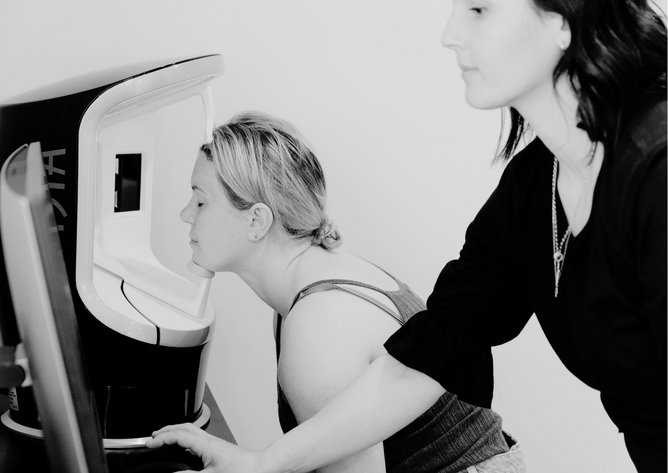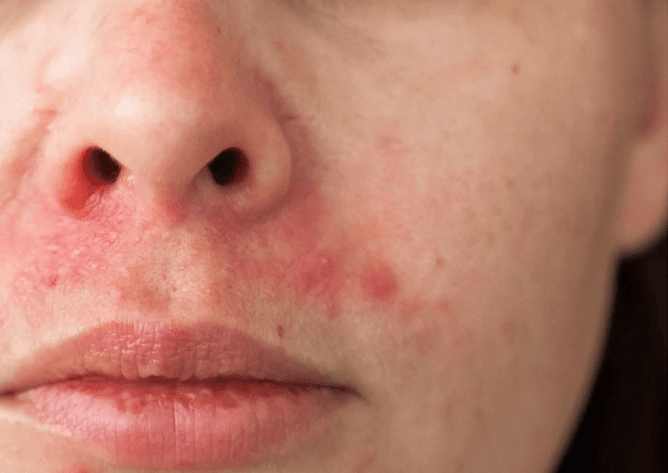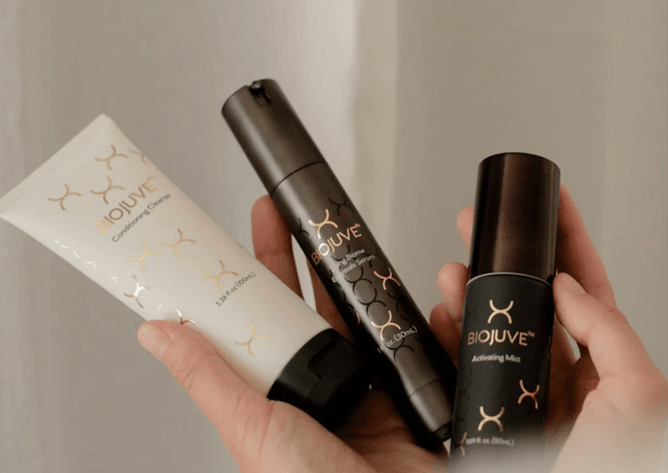As the seasons change and cooler weather sets in, we often see a rise in cases of Perioral Dermatitis, an inflammatory skin condition that can be frustrating, confusing, and often misdiagnosed. Let’s talk about what it is, why it happens, and what we can offer to help…
Perioral Dermatitis
Perioral dermatitis (PD) is a inflammatory skin condition that typically affects the area around the mouth, nose, and even eyes. It often presents as red, bumpy, irritated patches that may look like acne, eczema, or even a rash but it’s none of these.
To the untrained eye, it can be mistaken for breakouts or acne, but as Advanced Skin Therapists, we recognise perioral dermatitis by its distinct distribution pattern, textural changes, and sensitivity to products.
Clients with PD often experience:
Redness and inflammation
Small, clustered bumps (sometimes with pus)
Flaking or dryness
Itching, burning, or sensitivity to certain skincare products
PD typically appears in these areas:
Around the mouth (especially the nasolabial folds and chin)
Around the nose
Around the eyes (called periocular dermatitis)
Sometimes it affects just one of these zones, other times multiple areas at once. Cases of PD vary, some clients experience it severely and others mildly.
What Causes Perioral Dermatitis?
The exact cause is going to be different for everyone, but PD is often triggered by disruption to the skin’s microbiome and barrier. It’s a combination of internal and external stressors that create the perfect storm.
Some of the most common triggers include:
External Triggers:
Topical steroids (including nasal sprays and creams)
Overuse of exfoliants or active ingredients (like retinol, AHAs)
Fragranced products, essential oils, and pore-clogging makeup
Toothpaste ingredients like sodium lauryl sulfate (SLS) and fluoride
Weather changes, especially the cold and dry
Misdiagnosis (e.g. treating as eczema or acne, which can worsen PD)
Internal Triggers:
Chronic stress
Hormonal imbalances (puberty, contraception, menopause)
Gut dysbiosis (imbalanced gut microbiome or food sensitivities)
Nutritional deficiencies (especially B vitamins, zinc, and omega-3s)
Immune disruptions or infections
Diet (e.g. spicy foods, sugar, excess caffeine)
Treating Perioral Dermatitis
There’s no “quick fix” for PD, but the good news is it’s treatable with the right approach. The most important first step is identifying and removing triggers, this may take some time and patience.
Here’s how we approach treatment:
1. Gentle, Non-Stripping Skincare
Less is more. We recommend simple, soothing, kind skincare that supports your barrier, not fighting against it it
Cosmedix Benefit Clean, Gentle Clean or Biojuve Conditioning Cleanse
Cosmedix Surge, Aspect Dr PentaHydration or IS Clinical HydraCool
2. In-clinic Harleh Facials
LED Light Therapy: Calms inflammation and promotes skin repair
Laser Genesis: Gently reduces inflammation and supports healing without damaging the barrier
Oxygen Therapy Facials: Infuses oxygen and soothing serums
Barrier Repair Facials: Focused on restoring hydration and microbiome health
These treatments are non-invasive and ideal even during flare-ups.
3. Lifestyle & Internal Support
Addressing internal causes is key to long-term management. We may recommend:
Nutritional support (Bestow Beauty Plus Oil)
Reducing caffeine, spicy foods, and processed sugar
Managing stress through breathwork and sleep
Switching to SLS-free, fluoride-free toothpaste
Collaborating with us and a naturopath or GP for lab testing (e.g. gut testing, hormone analysis)
Managing PD for the Long Term
Once PD is under control, prevention and maintenance become the priority. This condition can return if triggers creep back in, so consistency and simplicity are key.
Tips for long-term success:
Stick to minimal, barrier-loving skincare
Avoid topical steroids unless medically necessary
Opt for mineral-based sunscreen and makeup
Avoid heavy oils, comedogenic products, and harsh actives
Consider microbiome loving skincare (like Biojuve specifically) to maintain a healthy microbiome
Speak with us if you're unsure! PD is often misdiagnosed or self-treated incorrectly
Perioral dermatitis can be a frustrating condition, but it is manageable and more importantly, it’s something we can treat gently and holistically. With the right skincare, calming in-clinic treatments, and internal support, you can restore your skin’s barrier, reduce inflammation, and feel confident again.
If you suspect you’re dealing with PD, don’t wait, book a consultation with one of our Advanced Skin Therapists. We’ll help you uncover the root cause and create a treatment plan that’s tailored to you x





